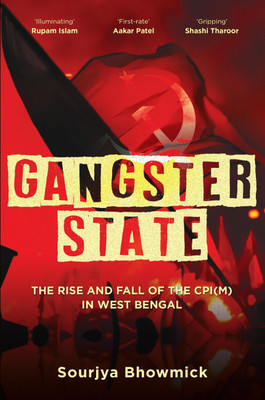Gangster State: The Rise and Fall of the CPI(M) in West Bengal(English, Electronic book text, Bhowmick Sourjya)
Quick Overview
Product Price Comparison
'Gripping' SHASHI THAROOR 'First-rate' AAKAR PATEL 'Illuminating' RUPAM ISLAM ŌĆśDocuments the unravelling of the communist experiment in the stateŌĆÖ BUSINESSLINE ŌĆśAn insiderŌĆÖs account ŌĆ” of what led to the undoing of the once mighty left frontŌĆÖ INDIAN EXPRESS 'Gangster State stands apart because it's an exercise in self-criticism undertaken by someone from the party itself' MALAYALA MANORAMA 'Gangster State reminds us about the pitfalls of a political party extending its hegemony to produce state-party fusionŌĆÖ NEWSLAUNDRY After reigning supreme in West Bengal for thirty-four years, how did the Communist Party of India (Marxist) end up on the fringes of the political arena? Allured by the unrestricted power of the CPI(M), Presidency College scholar Rajat Lahiri joins its student wing, the StudentsŌĆÖ Federation of India, and trains to become one of its foot soldiers. On achieving full-fledged membership, he does not hesitate in getting his hands dirty for a regime inherited by Chief Minister Buddhadeb Bhattacharjee from an ailing Jyoti Basu, and marred by corruption and violence. This change in leadership, prompted by the arrival of a strong contender in Mamata Banerjee, sustains the existing nexus of crime and politics and paves the way for fervid protests and their brutal suppression by the state. With the situation spiralling out of control and public support fading, the stage is set for the Singur movement and violence in Nandigram. After witnessing the partyŌĆÖs historic defeat in the 2011 Legislative Assembly election, a disillusioned Rajat leaves Calcutta, only to return as a journalist covering the gradual and thorough decimation of the CPI(M) over the following decade. In this compulsive work of creative non-fiction, political journalist Sourjya Bhowmick explores the burning question: Will the CPI(M) ever recover from the 2021 Assembly election, or will it be pushed into permanent oblivion by the formidable Trinamool Congress and the relentless BJP?


